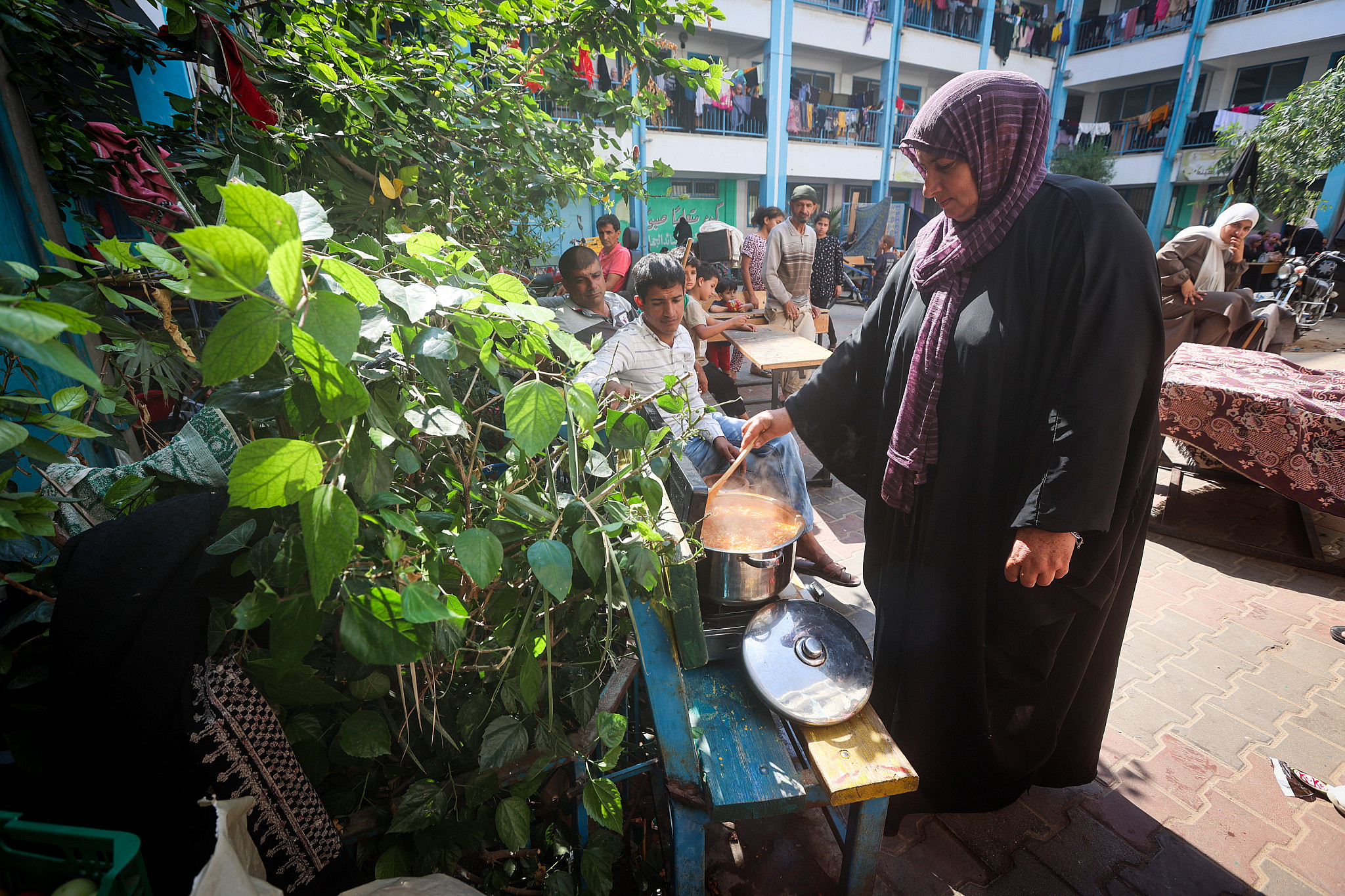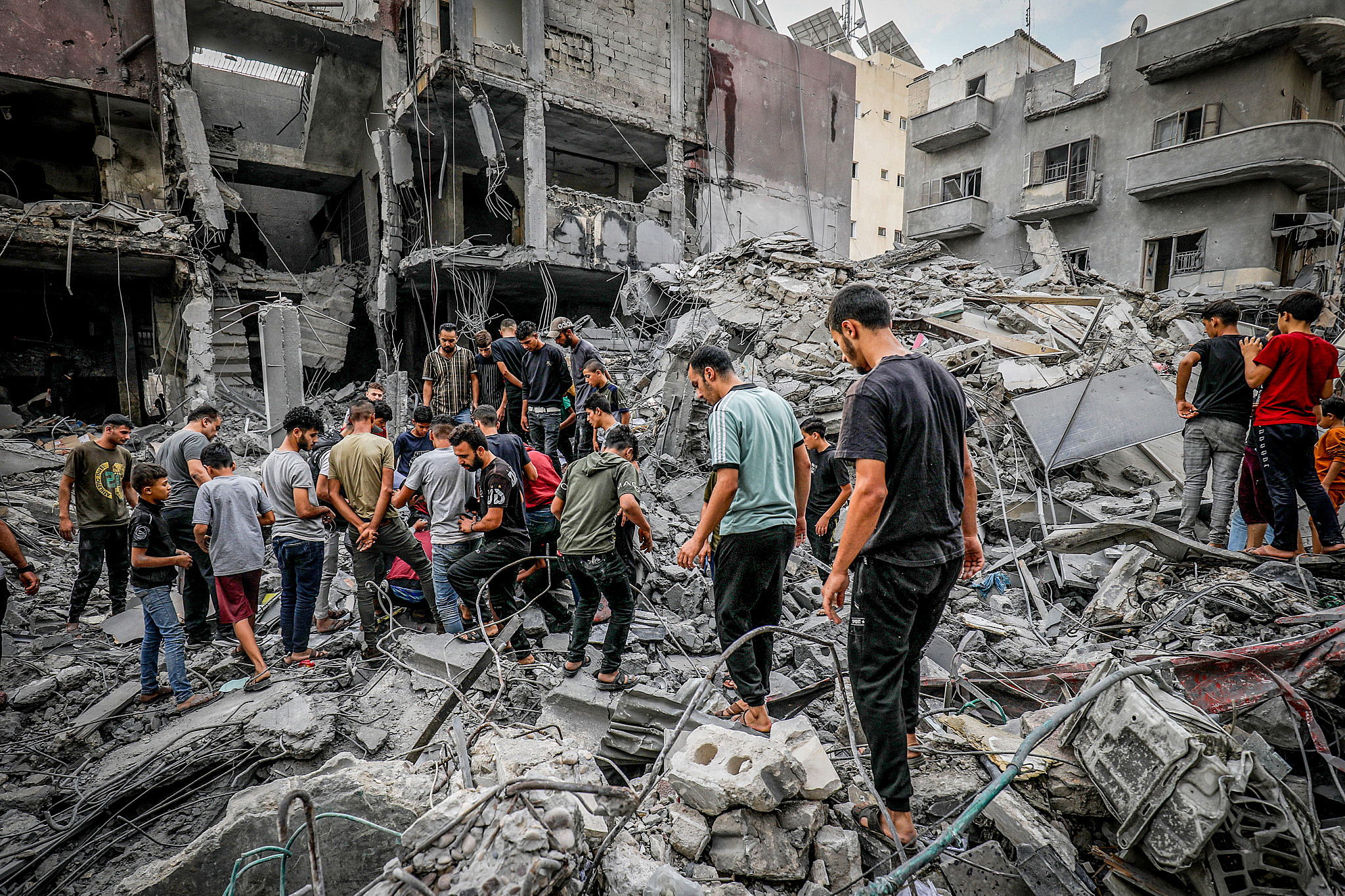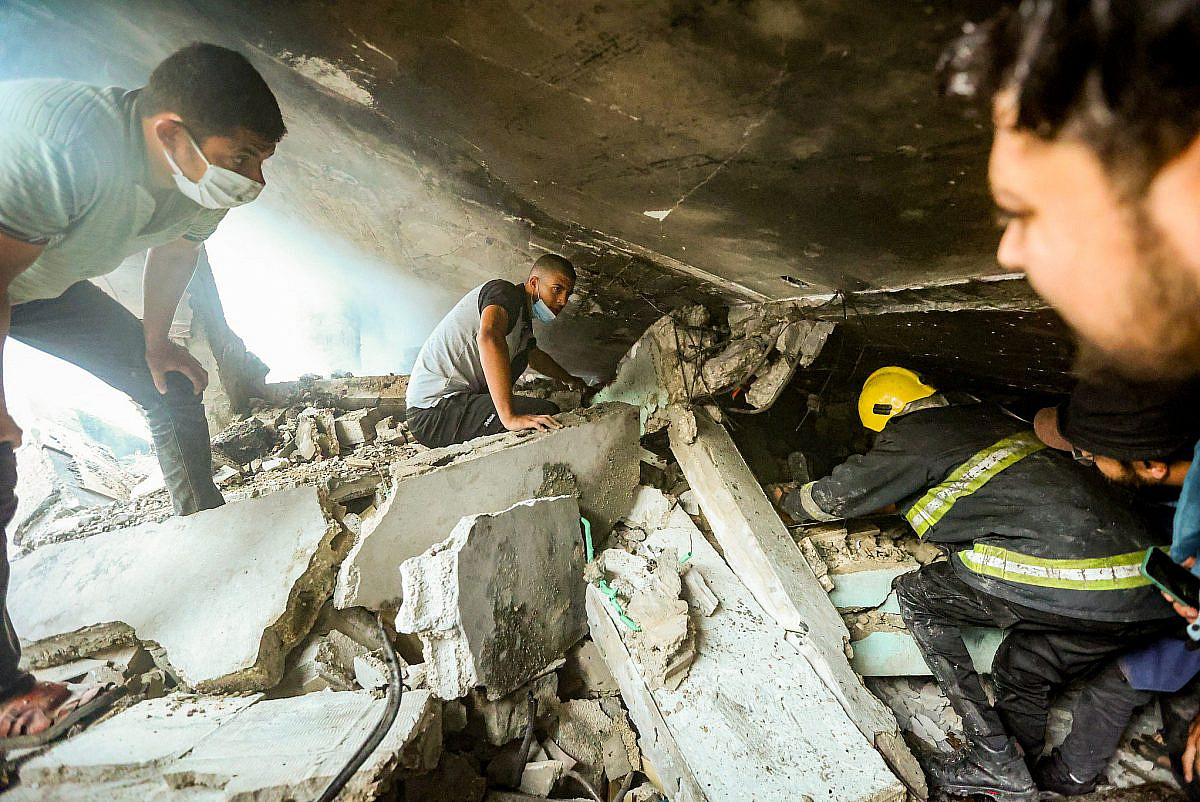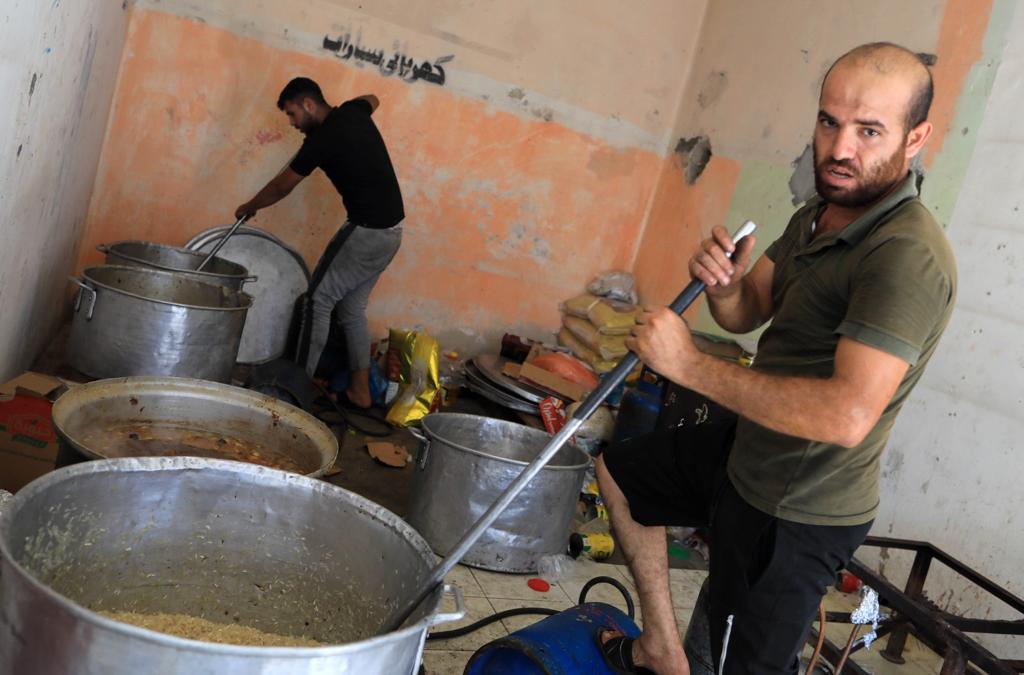The devastating effects of the Gaza war on Khan Younis are growing each day. Loved ones are departing this life and thousands of people are fleeing south, adding to the already dire humanitarian crisis. Civilians are crying out to be rescued from this catastrophe — but can anyone hear us?
Hundreds of thousands of Gazans have escaped south since Friday, when the Israeli army ordered the citizens of northern Gaza to evacuate. Hundreds fled to UNRWA schools, others to Nasser Medical Hospital, and some to their friends’ and relatives’ homes. Within just a few days, the population of Khan Younis — the largest city in the southern part of the strip — has swelled dramatically.
Khalid Al-Bura’y, a 35-year-old father from Gaza City, has been forced to relocate his family multiple times in the last week and a half. “When the war started, we fled to the UNRWA school [in Gaza City],” he said. “But later, the schools were no longer safe, as many of them were badly damaged [by Israeli airstrikes]. Then the occupation forces ordered us to flee south, and that’s why I moved with my family and my brother’s family to an UNRWA school in the west of Khan Younis.”
Al-Bura’y warned that conditions at the school are unsustainable. “Life here is extremely difficult. There is no drinking water. There is no power and communication with the outside world is almost cut off. We cannot bear this situation. We have children who want to eat and none of the things we need are here. The weather is getting colder and there are not enough blankets. My children will get sick.”

Overcrowded shelters are liable to lead to devastating second-order effects on public health, with reports of infectious diseases spreading, including smallpox. “Prior to the war against Gaza, smallpox had spread in the schools between students,” said Suad Muhsen, a 37-year-old mother. “I used to watch out for my children then, but when the war began and we fled to schools, I noticed [a smallpox rash] on some of the children and became afraid that my children will get infected. The medical and humanitarian situation of the UNRWA schools is extremely bad. Because of the water shortage, it’s [difficult to maintain] hygiene. We’re suffering trying to survive in any way we can.”
Others have been unable even to find shelter. There are hardly enough beds in Khan Younis to accommodate the influx of people fleeing northern Gaza, with some forced to sleep in the streets.
Mohammed Abu-Arar, who is from Khuza’a, a town east of Khan Younis, has been sleeping on the street with his neighbors and family since the start of the war. “We know nothing about our homes, whether they were destroyed or not,” he said. “Sleeping in the streets is terrible, but we don’t have any other choice. The UNRWA schools were already crowded and became even more crowded because of the people fleeing from the north of Gaza. We will stay in the street until the war ends.” If they are hit by Israeli airstrikes, Abu-Arar said, they will simply share the same fate as those who have been killed in this war. “Our lives are not more precious than [those of] all the victims.”
‘They targeted his house’
Everyone in Gaza has lost people they know. My 11th-grade chemistry teacher, Mahmoud Al-Masry, is gone. He was a lovely teacher, brilliant and kind, who walked us through this challenging subject. He lived in Khan Younis, where a whole generation of students wept over his death.

Isra’a Al-Najjar, 31, recounted her memories of Al-Masry. “When I was watching the news on Monday [Oct. 16] evening, I saw my teacher’s picture and I was shocked,” she said. “I remember his shy smile and his quietness while teaching the lessons, the words he used to encourage us. I never thought for a moment that we would lose this precious teacher. Our minds cannot take all of the loss from this painful war. All of my friends have cried for our teacher’s departure. How could we have imagined that we would never see him again in the streets of Khan Younis?
“The occupation warplanes targeted civilians in this savage way,” Al-Najjar continued. “They targeted his house. He was with his sons and grandchildren.” The airstrike killed over a dozen people. This family is gone.
Most read on +972
“On Tuesday morning at 7 a.m., the day after my teacher was killed, I heard a huge explosion very close to my house in the Al-Fukhari neighborhood. We all went out to the street to try and find the neighbors out there, fearing more missiles. We saw that the airstrike had hit the house of our neighbor, Bassam Abu Aker.” Bassam, his wife, his five children, and his niece were all killed. His son Odeh, 12, is the only survivor.
‘We want to feed all those who fled’
Despite their own grief and the constant violence, residents of Khan Younis are trying to provide aid to those who have fled from the north of Gaza. Jameel Abu Asi, for example, cooks 2,000 meals each day and distributes them throughout the city to those who have arrived from the north.
“This initiative was launched by my family after Israeli warplanes bombarded our family restaurant ” in 2014,” Abu Asi explained. “We could not fix the damage and reopen the restaurant, so we decided to cook meals and distribute them to the fleeing people at the UNRWA schools. Residents of Khan Younis bring ingredients to me and I cook. We work from the early hours of the morning until the evening.
“Hundreds of families come to us to get meals for their children, and this is exactly what we want to be doing,” he added. “We want to feed all those who fled, who left their homes, who came here, who have no relatives [in Khan Younis], and who are looking for food for their children under the siege.”





